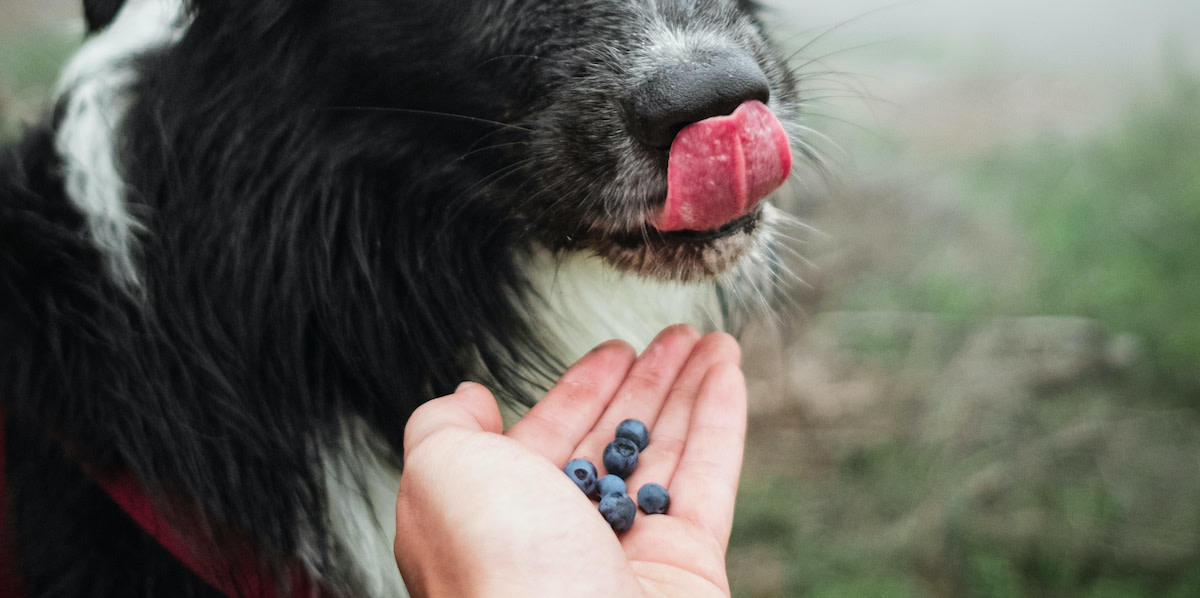Are Blueberries Good for Dogs? Benefits of Blueberries for Dogs
Written by MasterClass
Last updated: Apr 13, 2022 • 4 min read
Blueberries are good for dogs and humans alike. The nutrients inside these healthy treats act as fuel to help your dog’s bodily systems work as optimally as possible.
Learn From the Best
Can Dogs Eat Blueberries?
Fresh blueberries are safe for dogs to eat. It’s best to treat them as a supplement to your dog’s diet rather than a replacement. As an occasional healthy treat, blueberries are full of nutrients, like fiber, magnesium, and others. Despite their natural sweetness, they’re also unlikely to cause obesity due to being so low-calorie and low in sugar.
Are Blueberries Good for Dogs?
Blueberries are good for dogs and provide plenty of the same health benefits they do to people. Packed with antioxidants, blueberries also contain calcium, magnesium, manganese, and potassium—as well as vitamins A, K, and C. These berries can help bolster your pet’s immune system, counteract brain aging, increase energy, and neutralize harmful free radicals throughout their body.
Use common sense when feeding blueberries to your pet. For instance, smaller dogs might react negatively if they overeat these berries, as the high fiber levels can overstimulate their digestive tract. Most dogs, however, will tolerate and benefit from the nutritious attributes if you feed blueberries as an occasional supplement.
7 Tips to Safely Serve Your Dog Blueberries
When feeding “people food” to pets, it’s normal for dog owners to feel trepidation. So long as you keep these seven tips in mind, you can feed blueberries to your furry friends without concern:
- 1. Ask your vet for advice. Although most dog breeds can consume blueberries safely, it’s always a good rule of thumb to consult your veterinarian before giving your pet any kind of human food. Check with your vet about any underlying conditions your pet might have. An allergy or health problem might make it harder for them to tolerate blueberries than would be the case for another dog.
- 2. Avoid artificial ingredients. Although your dog can likely eat blueberries safely, the same might not be true when it comes to other blueberry-based food products. For example, blueberry muffins are far too sugary for a dog to consume without causing an upset stomach. Opt for organic and fresh blueberries rather than any chews or treats for humans—these usually contain preservatives or sweeteners dogs will have a more difficult time tolerating. Keep an especially vigilant eye out for xylitol, a very toxic ingredient for dogs.
- 3. Continue foregrounding traditional dog food. Give blueberries to your pet as an occasional treat rather than as the centerpiece of their entire diet. While these fruits are undoubtedly healthy snacks, your dog still needs a well-balanced diet. Dog food manufacturers formulate their blends to meet the requirements of your furry friend. As such, it’s unlikely blueberries could ever compete as a replacement on their own.
- 4. Experiment with different serving styles. You can combine blueberries with other safe fruits and vegetables. Blend them with blackberries, cranberries, and raspberries, along with peanut butter to make a protein-powered, dog-friendly berry smoothie. Alternatively, juice blueberries, purée watermelon, and mix and freeze the liquid as ice cubes to make hydrating popsicle treats for your pup on the next hot summer day.
- 5. Introduce blueberries gradually. Making dietary changes gradually is paramount to your dog’s health. If blueberries are a new food for your pet, try giving them one or two as a training treat before putting an entire serving in front of them. Even after you clear this treat with your vet, you might find they still cause gastrointestinal upset if you give your dog too large an amount.
- 6. Serve blueberries in moderation. Always give your dog small portions of blueberries. Large berries could present a choking hazard to small dogs, especially if they eat the food too fast. Regardless of your dog’s size, serving them too many blueberries at once will likely speed up their digestion and cause diarrhea as a result of their high fiber content. Opt for giving them a handful as a dog treat or a supplement to their diet rather than giving them a full bowl.
- 7. Watch out for pesticides. Feed blueberries to your dog only when you know they’re free of pesticides and herbicides. When you let a dog eat these fruits before you clean them off, you run the risk of introducing these chemicals into their system. Pesticides can cause an upset stomach or even more serious health problems.
Before Sharing With Your Pooch
Certain human foods can cause adverse reactions in canines, so always consult your veterinarian to determine whether it is safe to add these foods to your pet’s diet. This article is for educational and informational purposes and is not a substitute for medical or dietary advice.
Want to Learn More About Training the Goodest Boy or Girl?
Your dream of having a dog who understands words like “sit,” “stay,” “down,” and—crucially— “no” is just a MasterClass Annual Membership away. The only things you’ll need to train up a well-behaved pup are your laptop, a big bag of treats, and our exclusive instructional videos from superstar animal trainer Brandon McMillan.
